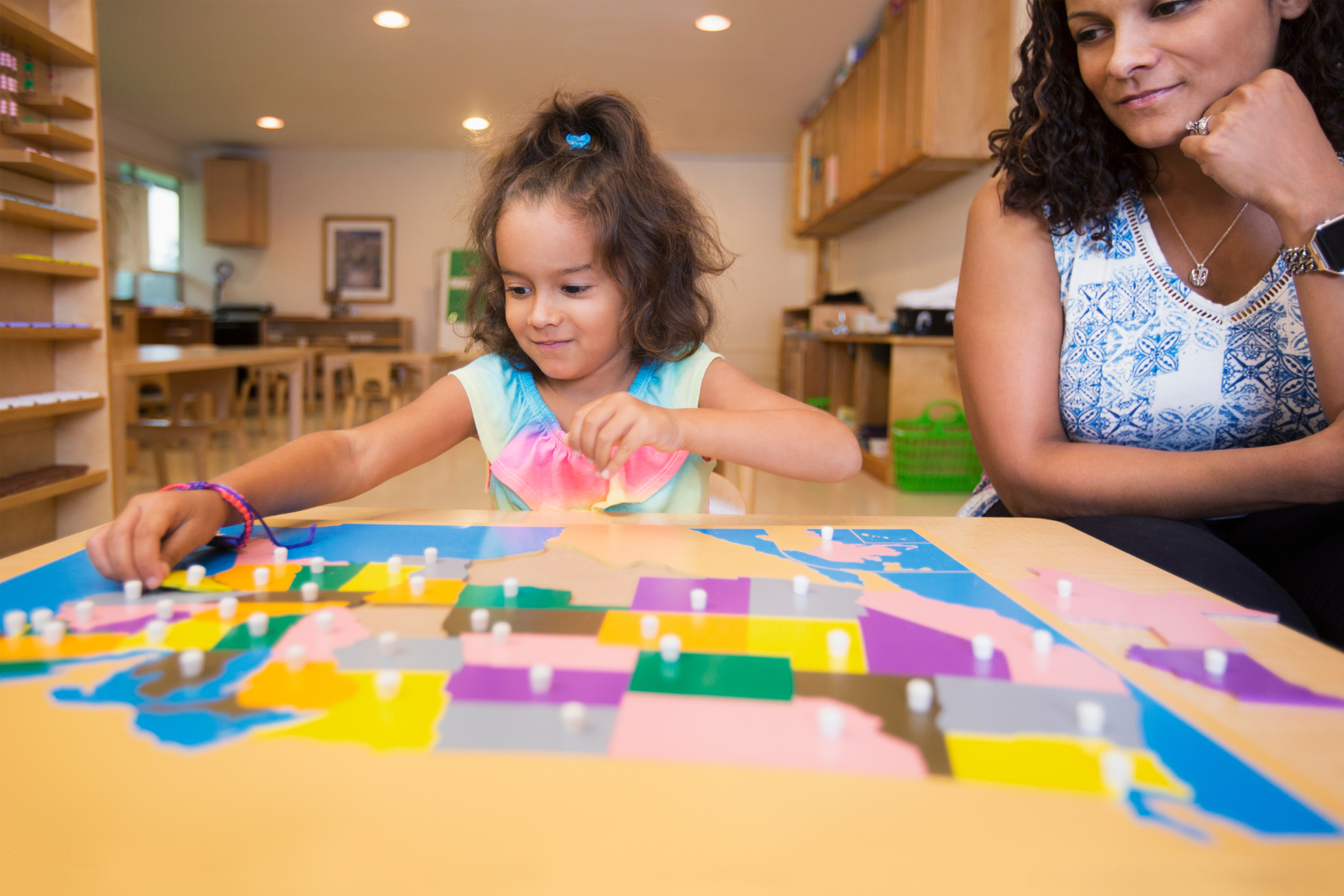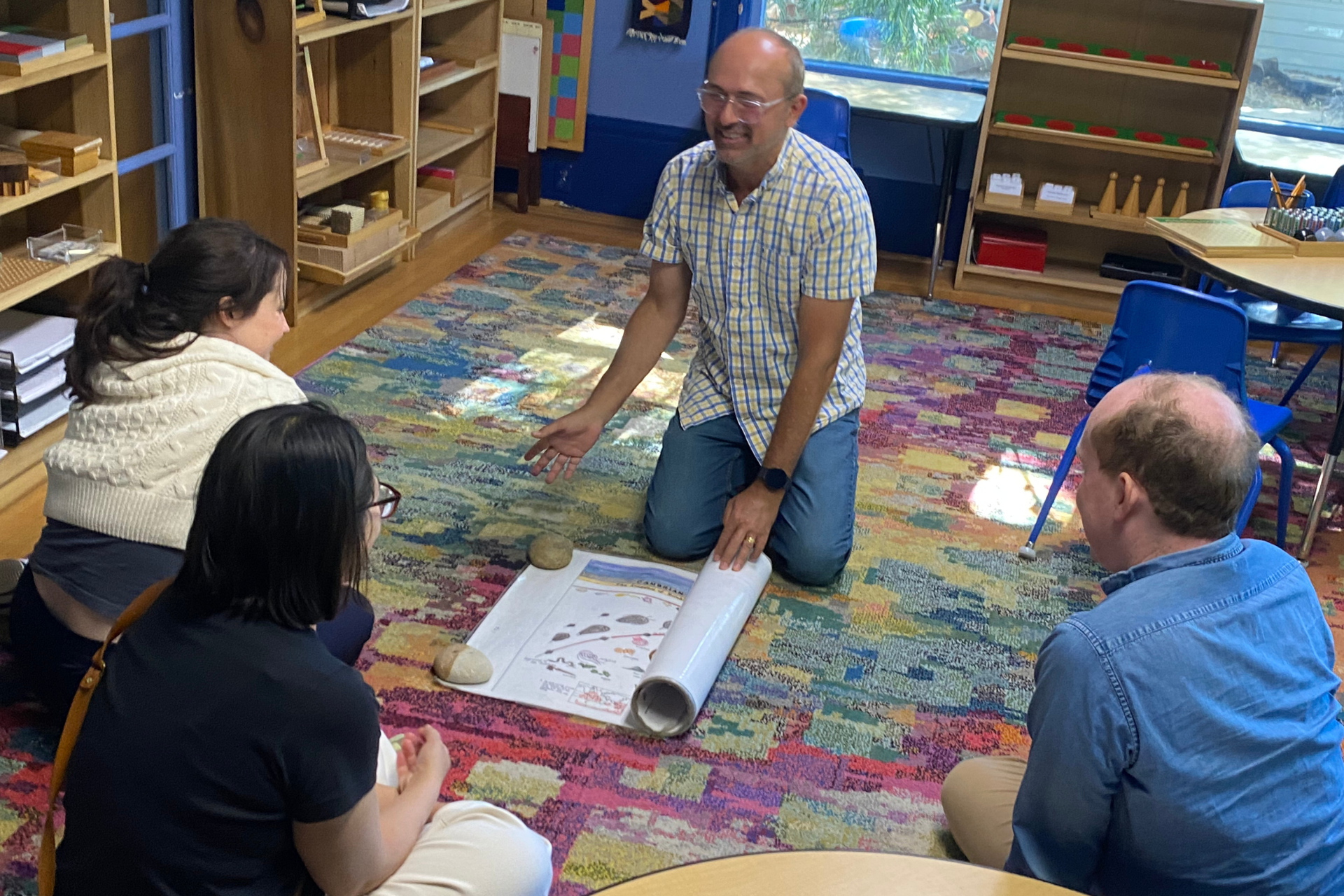Blog

This year we are beginning a series of lunchtime virtual sessions for Parent Education. Once a month we'll invite a host from our knowledgeable TRIS staff to present on a topic related to our school philosophies. Our first session was held in September and was hosted by our Head of School, Renee Hites.
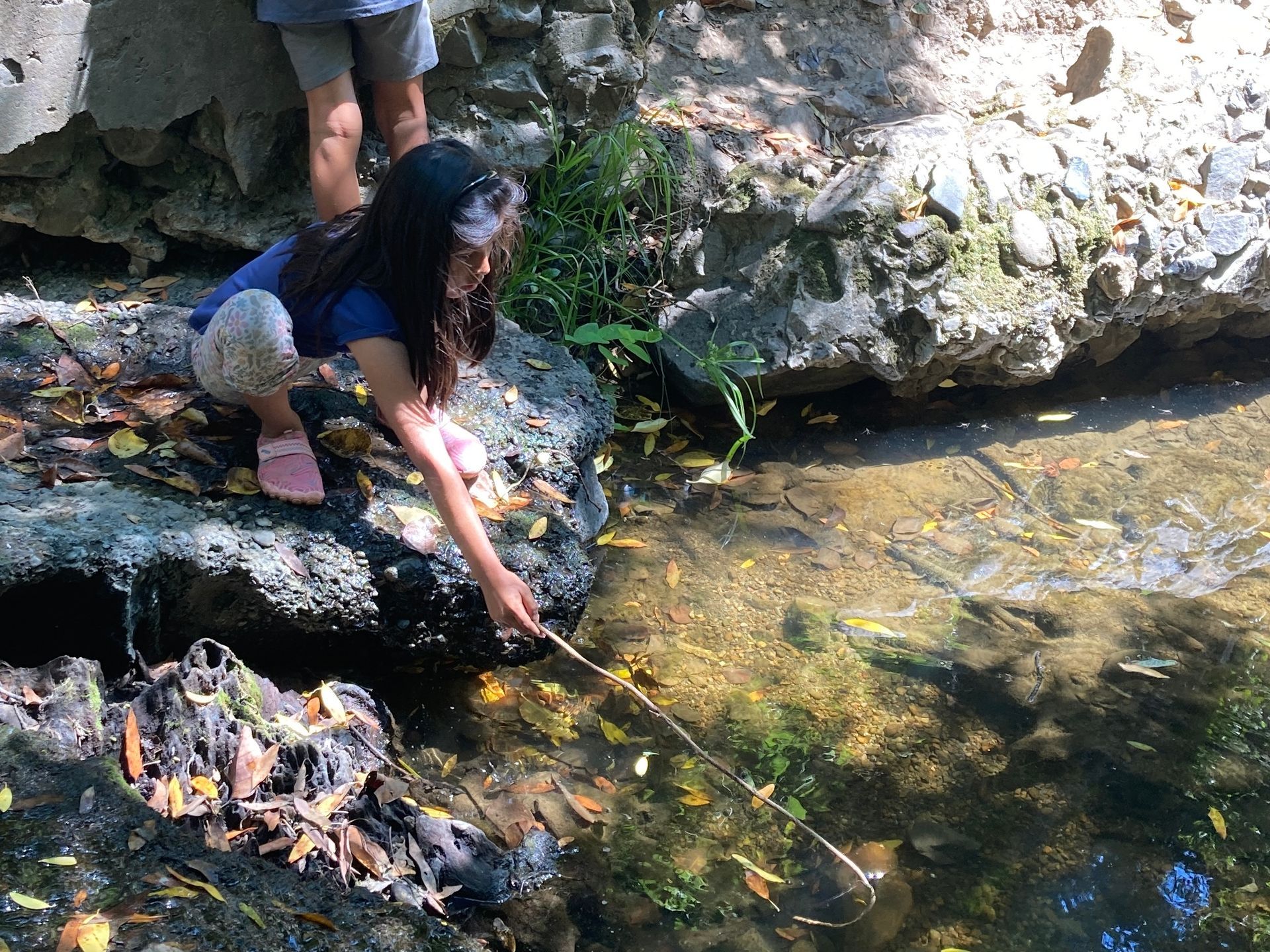
Exploring the Bay Area: A One-of-a-Kind Summer Camp Adventure Summer is a time for discovery, and at Exploring the Bay Area, our elementary Montessori students experienced a week like no other. Guided by the ever-enthusiastic wilderness guide and Montessori Elementary instructor, Nathalie Hites, the camp transformed each day into a journey across the diverse and stunning landscapes of the Bay Area. From riding buses and BART to catching the Ferry, students didn't just learn about the place they live — they lived it. Each day brought new ecosystems, unforgettable views, and hands-on experiences that made learning an exciting adventure. Monday: From Woodlands to Waves Students kicked off the week with a deep dive into the natural treasures, exploring oak woodlands, sand dunes, and the stunning ocean beaches — all in a single day! It was a perfect introduction to the varied ecosystems right in San Francisco’s backyard. Tuesday: Scaling Mt. Diablo Their journey continued with a trip east to Mt. Diablo, where students learned about the chaparral, grasslands, and fascinating local geology. A highlight of the day was climbing through Rock City, where students could physically interact with the landscape they were learning about. It was both educational and exhilarating! Wednesday: Wetlands and Water Fun at Brannan Island Midweek took them to Brannan Island State Recreation Area, where students explored the vital role of wetlands in our environment. The warm weather also provided a perfect excuse to cool off — and yes, a dip in the water was part of the day's fun. Thursday: Into the Redwoods at Muir Woods Students explored the awe-inspiring Muir Woods, home to the towering redwoods that define Northern California. Walking beneath the canopy, students were immersed in the unique ecosystem of the redwood forest — an experience that inspired both wonder and curiosity. Friday -Wonders at the Cull Canyon To wrap up our week, students headed to Cull Canyon, where they observed more oak woodlands and explored a riparian corridor — a lush, biodiverse area along the creek. And yes, the week ended the way it began: with sunshine, laughter, and a refreshing swim! Exploring the Bay Area wasn’t just about field trips — it was about connecting students to their environment, deepening their appreciation for nature, and fostering independence through real-world exploration. Whether hiking, swimming, or simply observing a new ecosystem, our students walked away with more than knowledge — they gained a sense of place and belonging in the world around them. Stay tuned for more updates from our Montessori adventures — and until then, keep exploring!
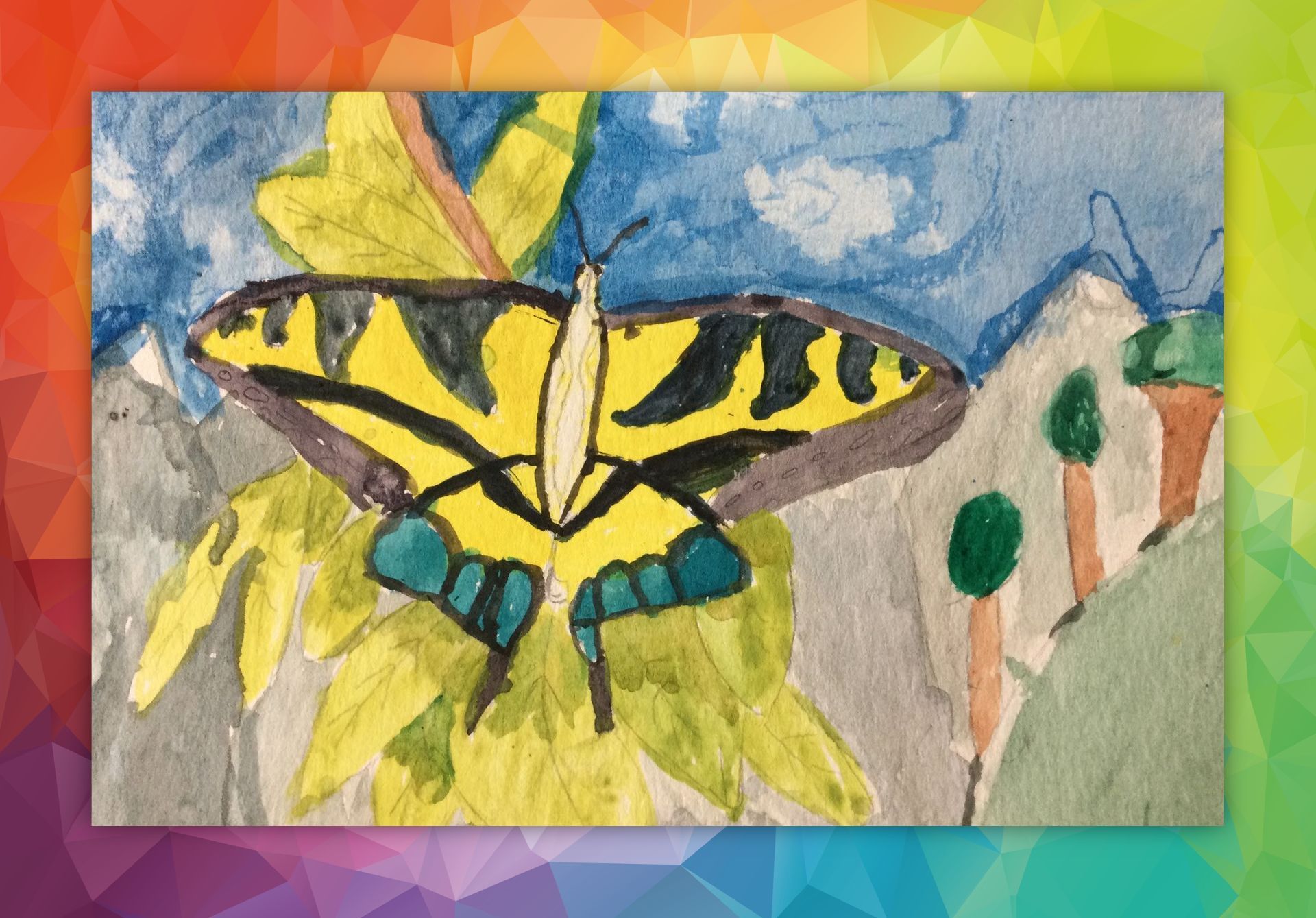
We're so excited for our upcoming spring concert, where we'll explore the incredible beauty of nature in all its forms! Our vision for this performance is to celebrate various aspects of the natural world, from animals and water to vibrant flowers, breathtaking landscapes, and captivating weather. The students will perform "J'ai vu le Loup" (I Saw The Wolf), a lively French tune about animals playfully dancing and laughing. Its catchy melody and humorous lyrics, featuring wolves, foxes, and hares engaging in human-like antics, make it a favorite among our students to perform. Be ready to be transported to the serene Scottish hills with "Loch Lomond." This beautiful piece evokes images of the famous lake and its rolling landscapes, telling a touching story of longing and natural splendor. A charming Chinese folk song celebrating the sweet, fragrant jasmine flower, "Mo Li Hua" will also be featured. The students enjoy mimicking a jasmine bloom with their hands as they sing this beautiful melody. We're also incredibly proud to debut an original piece created by our talented students: "Power of the Night." This semester, they've worked diligently, making key decisions on the time signature, key, and tempo. I developed a chord progression, and the students brainstormed lyrics inspired by winter and its unique weather. Through a collaborative process of refining lyrics and melodies, "Power of the Night" came to life, exploring themes of friendship, thunderstorms, and even dragons! We can't wait to share these wonderful musical stories and more with our community at the spring concert! Jade Woo Kodály Vocal Instructor - Elementary
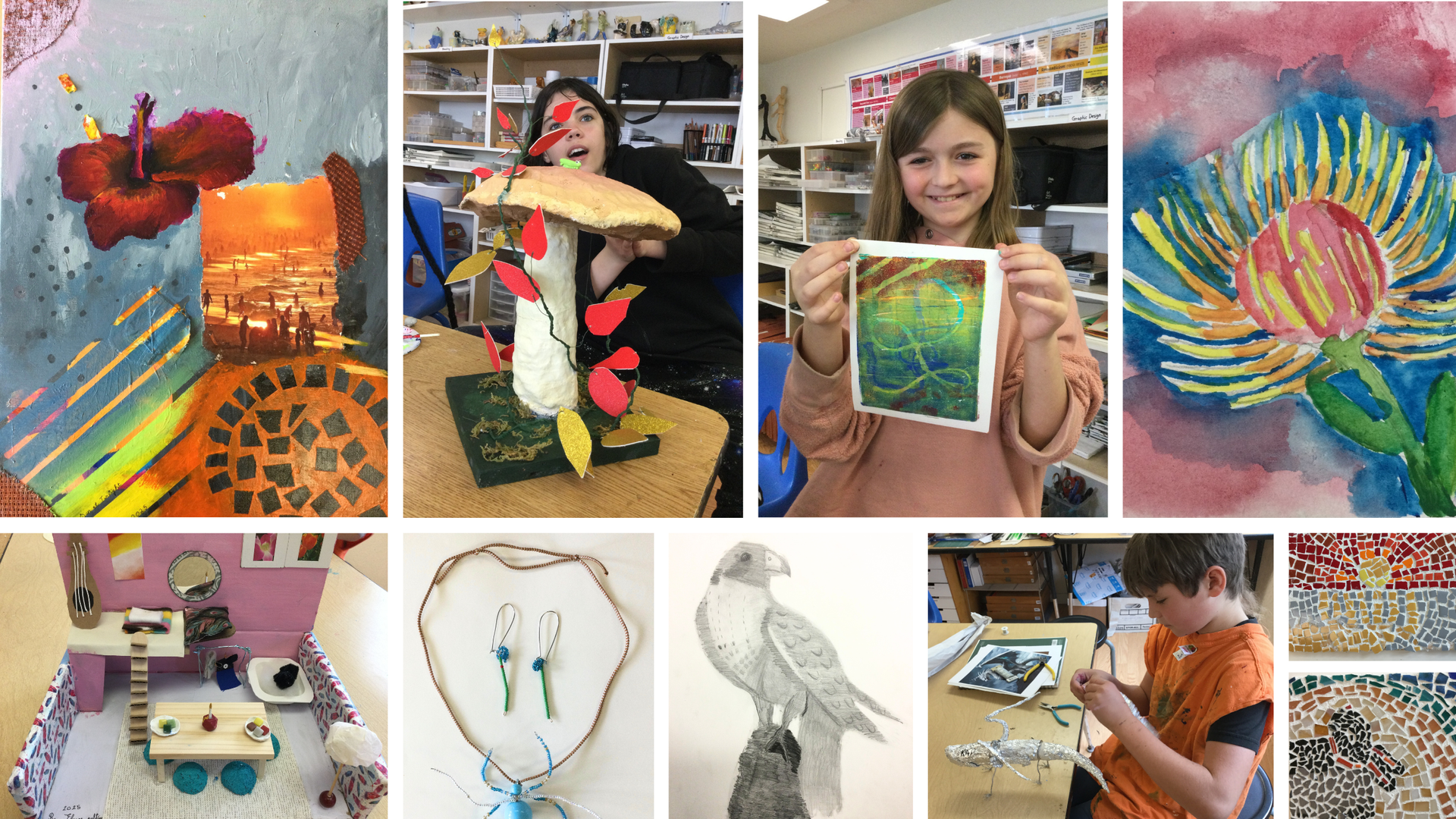
At TRIS, we believe that art education is more than just creating pretty pictures. It’s a powerful tool for cognitive and emotional development. Students build self-esteem, develop self-control, and strengthen their problem-solving skills through individual art projects. Our lessons also incorporate thoughtfully curated art history, organized by timeline and selected to highlight significant works and movements.
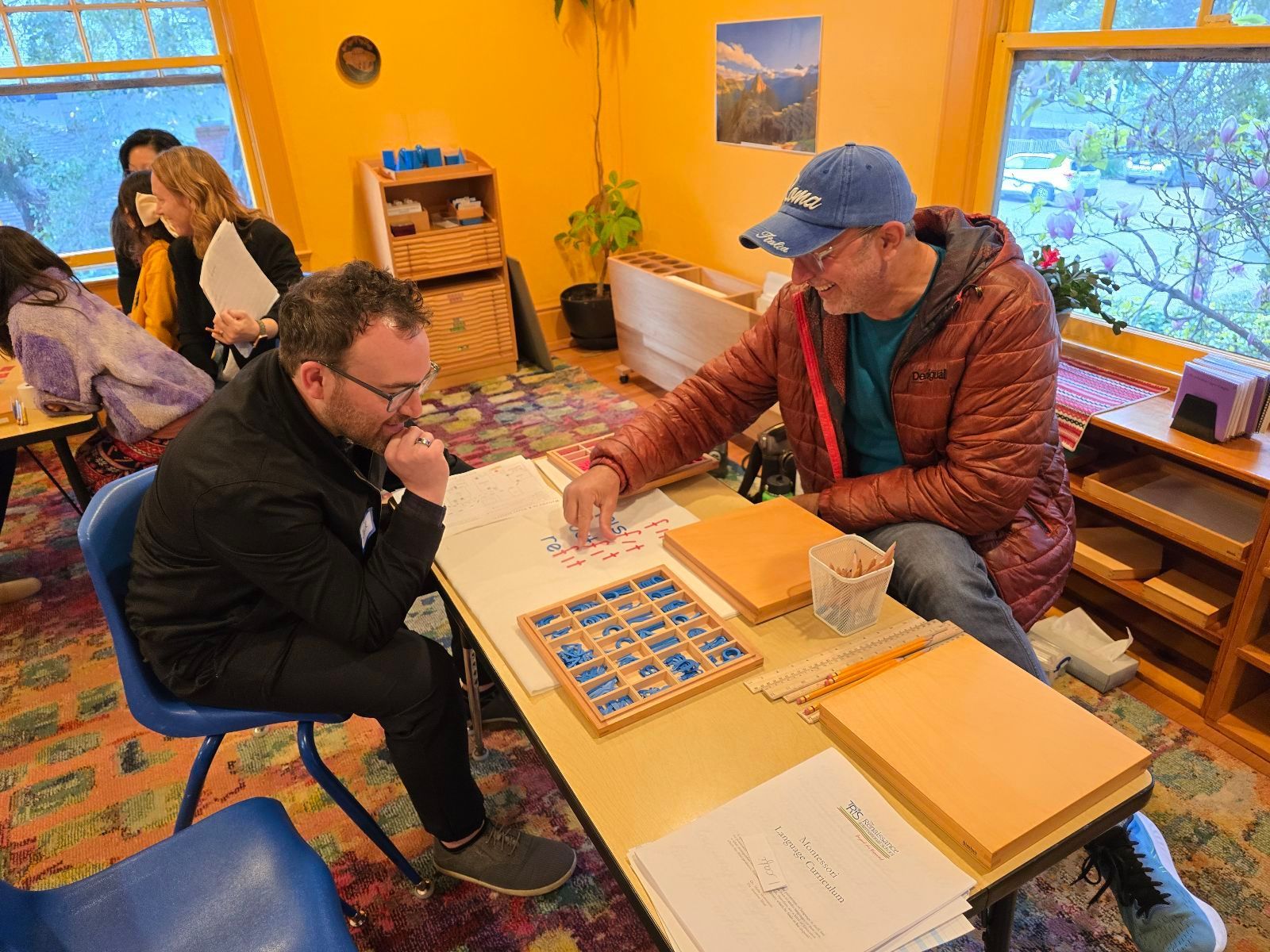
Our school community was thrilled to experience the "Silent Journey," a unique and insightful event showcasing the TRIS Montessori curriculum. This school year, the Silent Journey focused on the Trilingual Immersion Program we offer at The Renaissance International School. The Preschool/Kindergarten Programs offer Spanish or French and English immersion, and the Elementary Program offers Spanish, French, and English immersion with native-speaking Montessori guides. Why the Silent Journey? The Silent Journey isn't just a walkthrough; it's a carefully curated experience for parents that maps out a Montessori curriculum for children aged two to twelve and explains the Montessori philosophy and methodology behind the careful, child-centric, developmentally appropriate, and systematic approach to learning. The Silent Journey Experience - The Big Picture To The Nitty Gritty! The Silent Journey offered an opportunity to: Strengthen the school-home partnership: A better understanding of the curriculum and specific methodologies used in the classroom supports a child's learning journey and strengthens the essential partnership between home and school. Experiencing the Learning Continuum: Parents walked through our classrooms, observing the sequential progression of our language curriculum from Toddlers (ages 2-3) to Elementary (ages 6-12). This presentation allowed them to see the holistic development of language skills across all levels and how language studies intertwine with all subject areas in the Montessori classroom. Exploring Our Trilingual Immersion: Our program is built on the science of reading, emphasizing phonics and phonemic awareness. Parents could see how we cultivate these skills in our youngest learners. They also witnessed our unique approach to phonemic awareness, grammar, and parsing across English, French, and Spanish. Witness the Montessori Method in Action: Parents observed how Montessori materials and principles work together in learning. They discovered the thoughtfulness and intentionality behind the Montessori Method. This included the vast array of materials for all language study components such as phonology, syntax, semantics, etc., how Montessori guides give lessons to introduce, reinforce, and retain concepts, and the design of materials and how they foster independence, promote self-directed learning, and nurture a love of exploration. They saw materials and methodologies that empowered their children to learn and practice concepts independently and at their own pace, becoming active drivers of their learning. From Observer to Participant - Stepping into a Montessori Student's World : After their silent observation, parents received lessons from our Montessori guides and enjoyed the hands-on experience of being a Montessori student. Understanding the Form and Function of Montessori Materials: Parents better understood the Montessori Language materials and how they enable a deep conceptual understanding of study areas. Overall, the Silent Journey experience was a great success and helped parents gain a deeper appreciation and understanding of the Montessori Method, with many parents remarking, " I wish I had learned the Montessori way! "
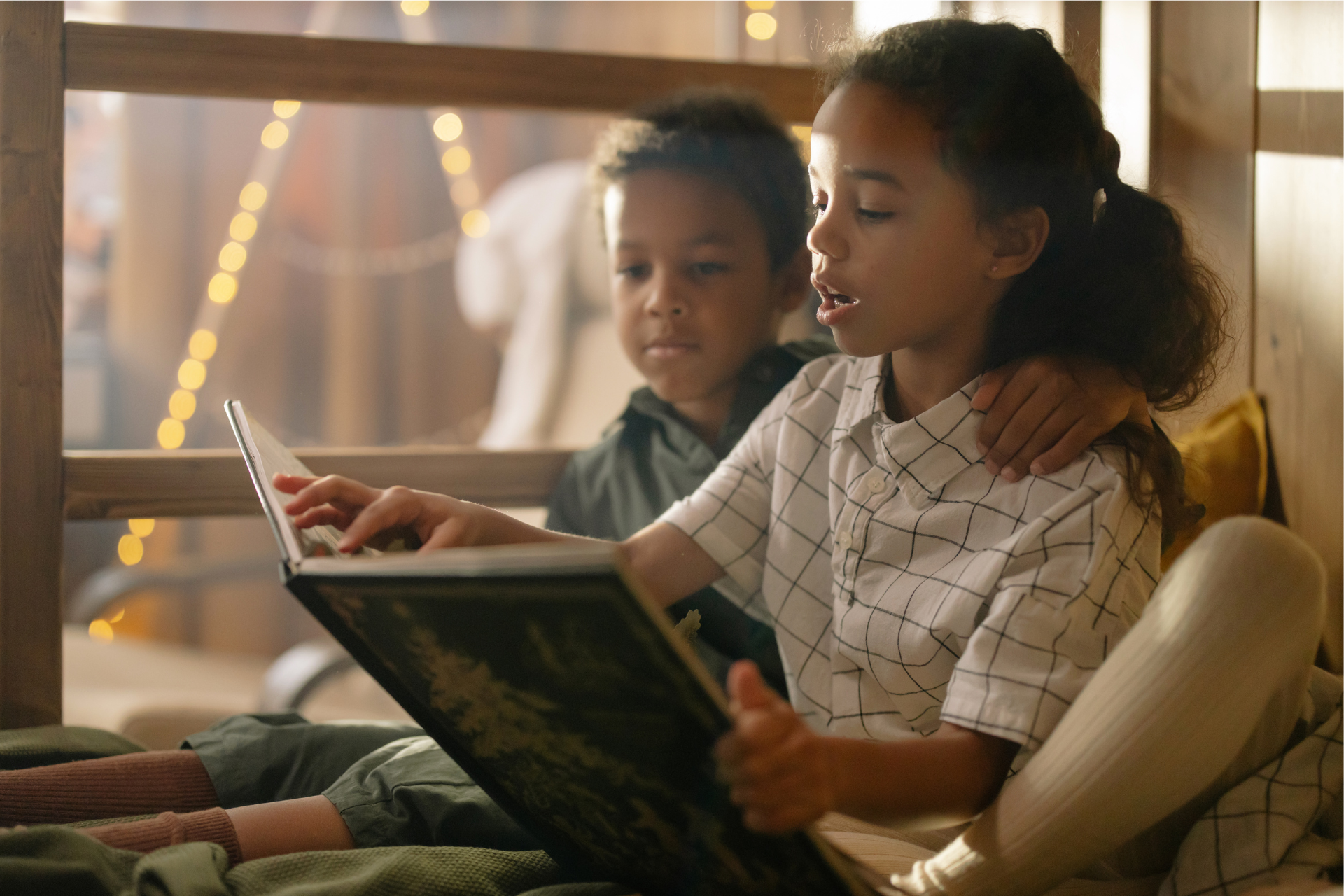
Reading is often described as a gateway to new worlds, a bridge to understanding, and a sanctuary for the mind. Its benefits are myriad and go far beyond simple entertainment. Books provide a unique escape from reality. One can spend an entire afternoon climbing the Citadel with Rudi Matt , traveling through space and time with Meg Murray , or befriending a gorilla named Ivan . Books also have the ability to help develop empathy. By stepping into the shoes of diverse characters, readers can experience situations and perspectives that differ from their own. They can experience the ups and downs of moving from a Japanese community in Iowa to the deep south of Georgia , learn how it feels to have a stutter , or see what it is like to adopt an orphaned gosling . Reading also provides us with a way to gain more information about history, science, or really any human knowledge. Through reading, we can learn about World War II , extraordinary women who have contributed to society, and so much more. It is all the more concerning that recently a series of articles have come out discussing the concern among university professors about the decline of reading levels among their students. Professors across the board are finding that their students are unable to engage in the type of literature or academic reading that was once expected, even ten years ago. These articles point to social media usage, shortened attention spans, and high schools that do not ask their students to read entire books, as some of the reasons for the changes that are being seen. It is clearly a complex topic, and it is unlikely that there is one factor that is to blame, however, the topic has made me reflect on the importance of cultivating a reading culture and habit from a young age. Being an avid reader has long-term benefits. It is one of the avenues that allows humans to be life-long learners. Building the skills to concentrate, focus, and understand different types of books is critical to being able to access information in the world. We want our students to have the skills and knowledge to seek out information based on their interests and to always be curious about the world around them. In the long-term, reading also helps keep the brain engaged and active. As people age it helps stave off cognitive decline. Having built that strong foundation It is not just the act of reading which is important however, but what children are reading that is of equal importance. Choosing high quality books and content, however, is not always easy. What to look for when choosing books for your children Finding the right book for your child, at any reading level, can be a challenge. This is particularly true if they are resistant to reading independently (once they have reached a certain fluency level). There can be a temptation to therefore allow them to read any children’s literature out there - in fact, this is often recommended by librarians and other educators. We at TRIS, however, feel that there are some important factors that one must consider when choosing what literature to expose your child to. Here are some factors that we think are important as you choose books for your child: Values and Messaging One of the most important aspects of choosing literature for children is identifying what values and messaging are found in books. Think about what values and behaviors you would like to see your child embrace. If kindness and respect are important to you, be sure to find books in which respect and kindness are highlighted - not the opposite. Many children’s books depict “humorous” scenarios in which children are mean to each other, put each other down, or make jokes at the expense of others. While this may seem harmless, these messages impact your child and very often one will start to see a change in your child’s behavior. Language and Vocabulary It is important to trust that your child is able to understand and comprehend sophisticated language and vocabulary. Exposing them to sophisticated language from a young age is important. Believe that your children are capable of understanding challenging books. Read aloud with them frequently so that you can introduce them to words that on their own, they may not yet be able to understand. Style/Genre Children learn an immense amount from the books they read. Time and time again we see that strong writers are often avid readers. They are able to pick up style, tone and nuances of language when they read a variety of books. This is why it is so important that children are exposed to a wide variety of genres. It is important that they learn how to read more formal writing, as well as enjoy more informal writing. Being exposed to a large variety of genres opens the doors to their learning and adds to their arsenal of knowledge that they can then access later in life. Grammar There has been a rise in books geared toward early to mid readers in which the grammar is incorrect. Every time a child reads a book, they are building their knowledge about language. If they are being exposed to incorrect grammar, that is what they will learn and it will show up in their writing. Choose books that follow correct grammar and models desired writing. There are many other factors that may come into play when choosing a book for your child (this is whether they are reading it themselves or whether you are reading it with them) but the four criteria above are a good place to start. https://slate.com/human-interest/2024/02/literacy-crisis-reading-comprehension-college.html https://www.teenvogue.com/story/college-students-not-reading https://www.theatlantic.com/magazine/archive/2024/11/the-elite-college-students-who-cant-read-books/679945/ Renée Hites Head of School The Renaissance International School
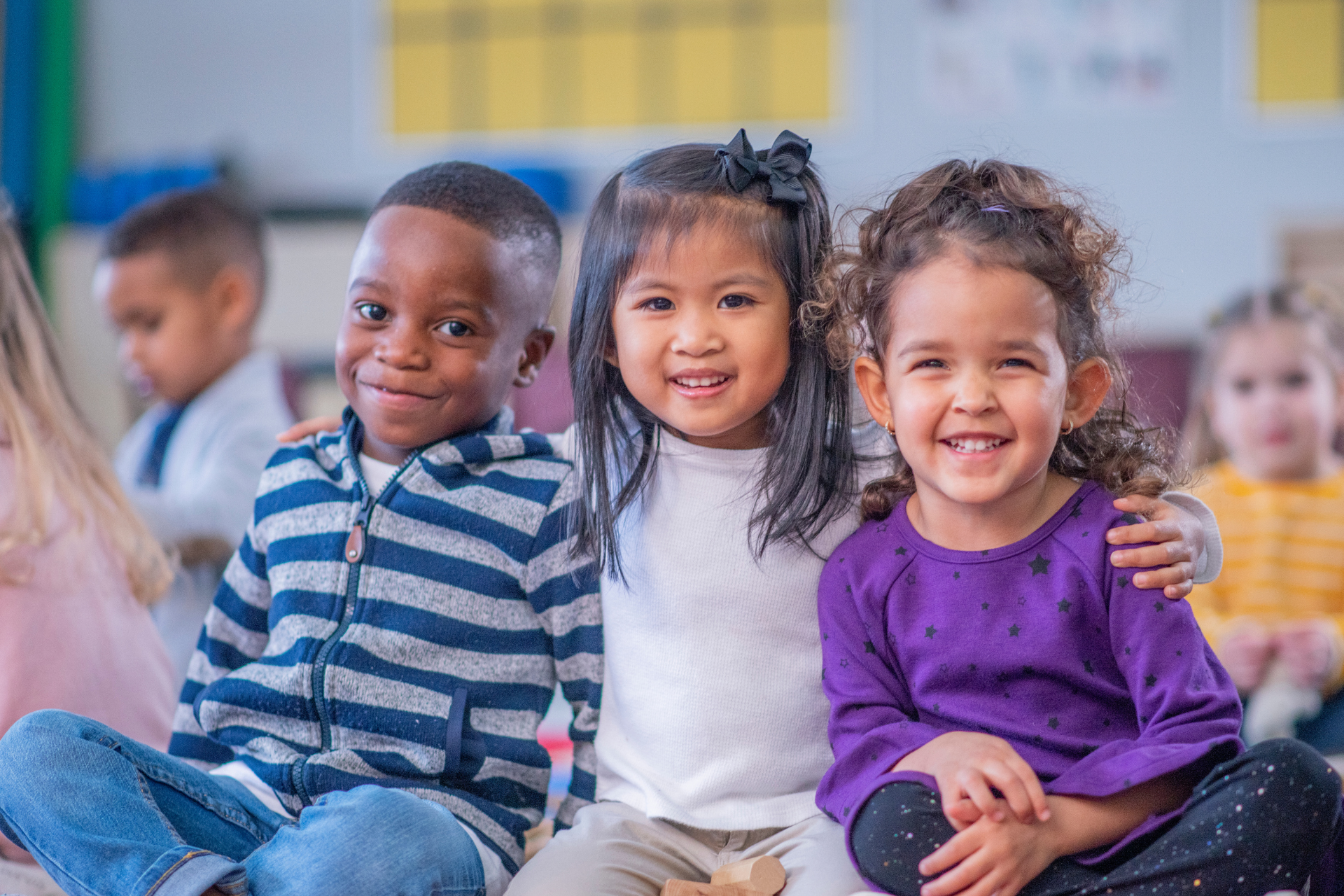
When I think about what my goal is as an early childhood educator and as a parent of young children, I often think about the attributes I encounter with adults and what I would like my children to exude in the future. For me, and probably for many, I would like my children (biological and students) to become confident, resilient, caring, curious and independent individuals. Now comes the big question, how do we get there? Teaching children about choice and consequence is key. In building confidence, resilience, curiosity, and independence children must first make mistakes and learn from them. They must take risks and see what happens. They must face challenges and learn from their setbacks. In building kindness and empathy, children must learn how their choices and actions affect others. They must do all of this even if it makes them uncomfortable; especially when it makes them uncomfortable. For adults, this is the hardest part. In an interview, psychiatrist Dr. Daniel Amen stated “You want kids to make mistakes, and you want them to pay the consequences so they learn agency…It’s hard, you have to have the big picture in mind, and the long game in mind…if I do too much I am robbing them of their self-esteem, of their sense of responsibility and agency. And that is a disaster you just don’t want¹” Let’s look at some definitions. Accountability²: the quality or state of being accountable…willingness to accept responsibility or to account for one's actions Empathy³: the action of understanding, being aware of, being sensitive to, and vicariously experiencing the feelings, thoughts, and experience of another Excuse⁴: a: to make apology for. b: to try to remove blame from There is no doubt that balancing empathy and accountability can be tricky. During our community meeting in October, we discussed some barriers that families have encountered. 1. Parents who are not of the same mind either of what is acceptable behavior from the child or of the consequences from such behavior. 2. Consistency with limits and consequences, especially when big feelings become involved. 3. Knowing what are age appropriate expectations, limits and consequences. 4. Understanding the differences between punishment and logical consequence. 5. Knowing when you as a parent should step in. While we certainly don’t have the answers to all of these, here are a few tips we think may help. Have weekly family meetings. If your child is really young, perhaps these meetings are with you and your partner to check in and make sure you are on the same page. Parents need to present a united front when implementing limits and consequences. Recognizing that it is acceptable for children to experience strong emotions but this does not mean that their upset feelings excuse them from taking responsibility for their actions. As Dr. Aliza Pressman states, “All feelings are welcome, all behaviors are not.” Teaching children boundaries is essential! “No, you may not jump on the bed” is perfect for a toddler. As children get older, they may require a bit more of the why. “No, you may not jump on the bed because if you fall you can hurt yourself.” You should not repeat a boundary endlessly. Once a child knows the boundary we must follow through with the consequence. For example, on day 1 “Please pick up your toys when you are done. If toys are not picked up, I will have to take them away for a while.” Day 2. “Remember, toys that are not picked up will be taken away.” (child doesn’t clean up toys) “It looks like these toys were not picked up, now I am going to take them away.” The fundamental difference between a punishment and a consequence is that a punishment is meant to make a person feel bad or guilty while a consequence generally is meant to allow for a person to learn from their mistakes. Using the above example of a child who does not clean up their toys. A punishment might be something like. “If you don’t clean up your toys you will not have dessert.” Punishment is often unrelated to the behavior whereas a logical consequence is an outcome of the behavior. Observe! Allow your child the opportunity to recognize a mistake and think about solutions. When the situation escalates to a point where safety is at risk, emotions are overwhelming for the child, or when the child is clearly unable to identify or implement a solution on their own then parents should step in to help regulate the child and help guide them to a solution. Ask yourself: Is this my own anxiety, am I telling a story to myself Is this about me, or is it an issue my child is having In conclusion, fostering qualities like confidence, resilience, empathy, and independence in children is a nuanced and ongoing process. It requires a balance of teaching accountability while also allowing children the space to make mistakes, learn from them, and face consequences. As parents and educators, it's vital to remember that while children need to experience discomfort and challenges, they also need consistent boundaries and support to develop a sense of responsibility and agency. The key is to remain patient, reflective, and unified in your approach, understanding that mistakes and strong emotions are part of the learning journey. By combining empathy with accountability, we can help our children grow into well-rounded, thoughtful individuals who understand the impact of their actions, both for themselves and for others. 1 https://www.youtube.com/watch?v=avx4Ww9h3Tc 2. https://www.merriam-webster.com/dictionary/accountability 3. https://www.merriam-webster.com/dictionary/empathy 4. https://www.merriam-webster.com/dictionary/excuse 5. Pressman, Aliza. The 5 Principles of Parenting: Your essential Guide to Raising Good Humans

In the Montessori program, the outdoor environment is an extension of the classroom, offering unique opportunities to foster social, emotional, physical, and academic growth and development. Nature stimulates curiosity and creativity and a sense of awe and wonder that stays with children long after the outdoor experience has ended. The natural world presents opportunities to practice decision-making, problem-solving, and observation skills. For instance, students might have to decide the best route to take on a hike after evaluating options presented by peers depending on various factors such as time, varying abilities, and weather or build a shelter after collaborating to explore the best way to do so after careful observation of the terrain and surrounding area. These experiences build confidence and develop empathy, self-discipline, and initiative. They also nurture environmental stewardship and creativity and instill a sense of wonder and responsibility. This month, our elementary students will participate in two outdoor education programs. Upper Elementary embarks on a week-long adventure at Mono Lake, where they hike, explore, and learn about nature. Lower Elementary participates in the Wolf School program, spending four days and three nights immersed outdoors. These programs offer physical challenges and teach essential practical life skills. Students prepare meals, manage their personal belongings, and maintain their cabins while learning to share space and respect one another. After these trips, we witness remarkable personal growth in students and the classroom community. The experience strengthens community spirit, blossoms new friendships, and deepens bonds between students and teachers as they connect in a unique setting. The program encourages collaboration, teamwork, and social interaction while instilling an appreciation for nature and understanding the importance of environmental conservation. The memories made during these trips—whether through collaborating on a task, exploring, playing, or simply enjoying each other's company—become cherished moments that the children carry with them for years to come. These experiences shape their understanding and appreciation of the natural world, instilling a lifelong love for nature that is a testament to the lasting impact of our outdoor education program. Warmly, Wellington Pontes-Filho Elementary Program Director

